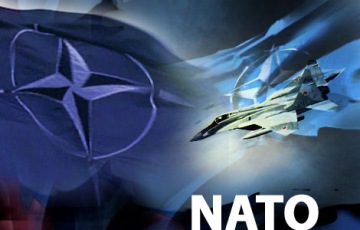1ST LEAD: Afghan-NATO partnership good, but more trainers needed
 Krakow, Poland - The Afghan army is leading an increasing number of counter-insurgency operations, but NATO needs to provide it with far more trainers if it is to meet its target of expanding to 134,000 by 2010, alliance officials said Thursday.
Krakow, Poland - The Afghan army is leading an increasing number of counter-insurgency operations, but NATO needs to provide it with far more trainers if it is to meet its target of expanding to 134,000 by 2010, alliance officials said Thursday.
"We are frankly not where we had hoped to be by now," Secretary General Jaap de Hoop Scheffer told the NATO defence ministers meeting in Krakow, Poland.
"The south and east of Afghanistan are riven by insurgency, while drugs and the lack of effective government contribute to frustration felt by Afghans at the lack of progress in building their country up," the NATO chief said.
And to prevent Afghanistan from becoming a safe haven for terrorists, NATO must send "more forces, more trainers" and "a greater civilian effort," he said.
His comments came in the wake of a decision by US President Barack Obama to send an additional 17,000 soldiers to Afghanistan, a move that has added pressure on the allies to do more.
The NATO-led International Security Assistance Force (ISAF) in Afghanistan currently relies on about 55,000 soldiers from 41 nations. Nearly half of these are from the US.
But US Defence Secretary Robert Gates, speaking on his way to Krakow, said half-hearted Europeans could also focus on helping Afghanistan's development and its fight against drugs and corruption.
"These are all areas where civilian contributions can be made," Gates said.
According to NATO figures, the Afghan army now leads 40 per cent and takes part in 70 per cent of all counter-insurgency operations taking place in the country.
Its size is set to expand to 86,000 troops by the end of March and to 134,000 by the end of 2010.
To help it achieve its target, allies need to provide it with far more trainers, officials say.
Ideal candidates for the job include French gendarmes, Italian carabinieri and Canadian mounted police officers.
NATO officials also said ISAF's weeks-long fight against drug traffickers who finance the insurgency had lead to "several arrests" and the seizure of 500,000 dollars worth of narcotics.
Defence ministers said they were committed to ensuring that presidential elections scheduled for August 20 run smoothly.
Germany, which is ISAF's third-largest contributor with about 3,400 troops, has already announced the deployment of an additional 600 soldiers. Of these, 200 will be sent on a temporary basis during the election period.
Meanwhile, Italian Foreign Minister Franco Frattini said during a visit to Kabul this week that his country could increase its troops by 500 to nearly 3,000 and send an extra
250 soldiers during the elections.
Ahead of the Krakow meeting, Gates suggested that the Afghan elections could provide new impetus for the deployment of the NATO Response Force (NRF), a lean stand-alone military force designed to be quickly deployed anywhere in the world and whose use has been bogged down for years by disagreements within the alliance.
"My notion is this pre-election period in Afghanistan is a good example where the NRF could provide a temporary strengthening of NATO's capability," the defence secretary said.
But the suggestion was rapidly shot down by his German colleague Franz Josef Jung.
"The NRF should not be considered as a reserve force. In principle, it has a very different role to play," Jung said.
During their two days of talks in Krakow, defence ministers were also likely to discuss a proposal by British Defence Minister John Hutton for the creation of a standing force of some 3,000 troops to defend the alliance's territory against possible attacks.
Hutton told the Financial Times that such a force would both reassure NATO's Eastern European members, shaken by last year's invasion by Russia of Georgia, and help break the deadlock over the NRF while eventually freeing up more resources for Afghanistan.
Part of Thursday's talks were also attended by Afghan Defence Minister Abdul Rahim Wardak and the United Nations' special envoy to Afghanistan, Kai Eide of Norway. (dpa)